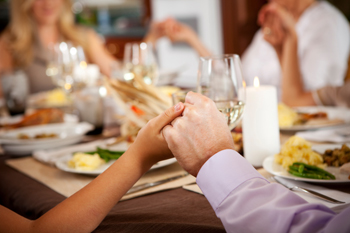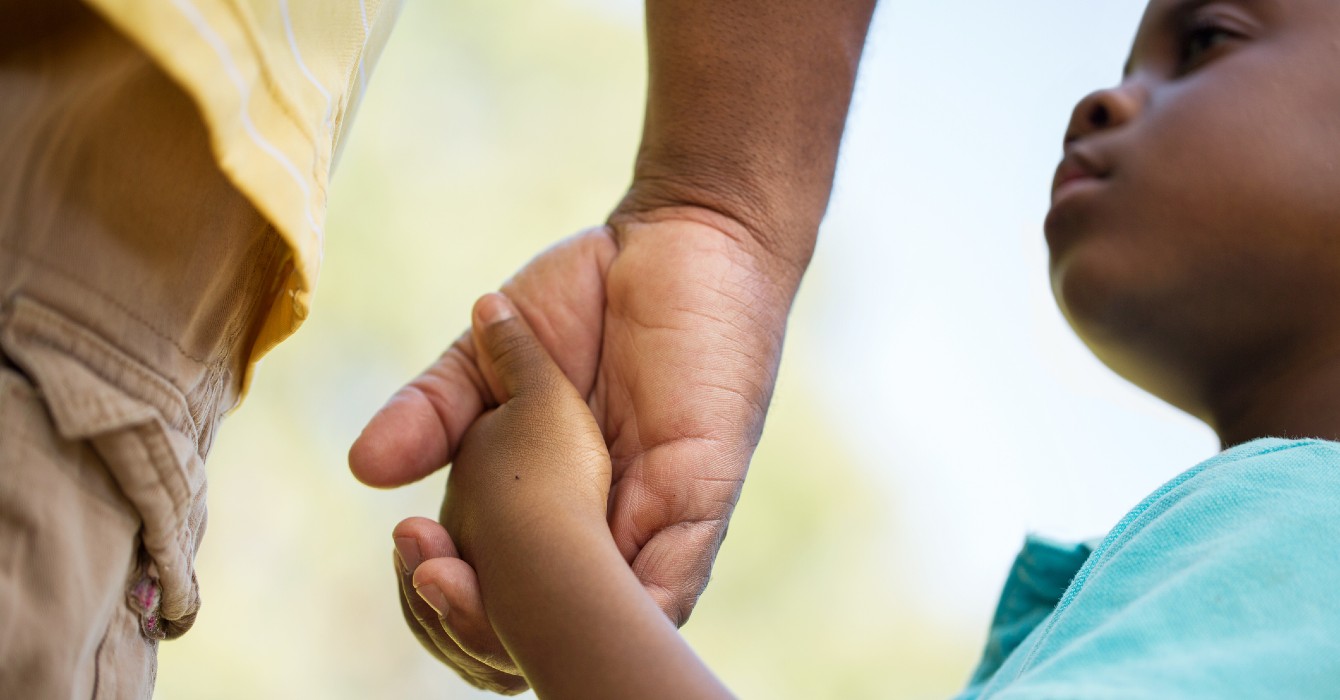On the Thanksgiving my mother stuffed the turkey with something other than her traditional recipe -- a rich swirl of fruit, vegetables, spices and bread -- my cousins were distraught, making no effort to hide their disappointment.
“It’s not Thanksgiving without Aunt Mary’s stuffing,” one of them said, and he was right to crave its moist goodness and refuse all substitutes. It really was that delicious.
I was as much a fan of my aunt’s Middle Eastern dishes -- my mother’s younger sister married a doctor from Palestine, by way of Lebanon -- and later learned to cook some of them on my own.
My memories of childhood Thanksgivings are of large families gathered at candlelit tables laden with food, the heady scent of cumin, nutmeg and cardamom, the clink of plates being filled, the feel of hot, dark turkey meat on the tongue, and familiar tastes that refuse to be captured in words.
I linger in these memories, savoring them as they burst in my awareness like pomegranate seeds crunched between my teeth.
These meals were -- and are -- true moments of thanksgiving, because they remind us of our vulnerability and interdependence. A land of easy consumption both breeds and thrives on forgetfulness, a failure to remember that there are precious few things we, as humans, absolutely need.
Among these, of course, is food, without which we wither and die. Elaborate or simple, gourmet or plain, meals are declarations that we are never entire to ourselves. We are, rather, final beneficiaries in a long chain of gift giving.
We are needy creatures, and after existence itself, the most astonishing miracle is that, while our most basic needs might not be met in the world, they are so often met in abundance.
What we eat arrives from somewhere, comes from someone -- a few better-compensated for their work than many others -- each place and person along the way just one step in an elaborate dance of cooperation between labor and grace.
When Christians celebrate the Lord’s Supper, or Eucharist -- the word in Greek means “thanksgiving” -- the words of the ritual meal remind the body’s gathered members of this cooperative dance.
For example, the words a Roman Catholic priest speaks after the bread is brought to the altar are “Blessed are you, Lord, God of all creation. Through your goodness we have this bread to offer, which earth has given and human hands have made. It will become for us the bread of life.” To which the people respond, “Blessed be God forever.”
This recalls the blessing called upon the unleavened bread in the Jewish Seder: “Baruch atah Adonai Eloheinu Melech ha-olam, borei pri ha-adamah,” which means “Praised are you, Lord our God, King of the universe, who creates the fruit of the ground/land/earth.”
The symbolic center of such rituals recalls that our first and chief gratitude is to the Creator who makes us and all we love and need, and yet neither Eucharist nor salvation is exclusively a matter between the individual and God. We are saved as a gathered people, and we gather to thank God in a meal where the most God-smitten mystic still takes time to thank the cook.
Both Eucharist and Seder are meals of re-membering, of calling together a body before God and calling to mind God’s gracious gifts. In the Seder, at which the Jewish people remember Israel’s liberation from captivity in Egypt, those gathered sing a song named for its refrain, “Dayenu,” meaning, “It would have been enough.” Each stanza recalls a miracle or divine gift, such as splitting the sea or setting aside the Sabbath, to which the people say, “Dayenu!” Any one of these would have been sufficient in itself, but God -- whose love and grace know no bounds -- grants far more.
At Thanksgiving, it would be enough merely to have food, but God grants more, for food can in fact be tasty. Taste is an extravagant sense. While there’s advantage in a species preferring certain flavors (sweet or salty, for instance) to others, it needn’t be the case that well-prepared food gives such delight. We do, however, savor delicious meals, buy cookbooks, trade recipes and set aside at least one room in our homes in which to prepare food and eat it.
What’s more, our tables usually have room for guests, and meals are occasions for companionship (from the words “together” and “bread”) and conviviality (“together” and “life”). One can eat in solitude, of course, and much in contemporary American culture encourages us to eat quickly and alone, often substituting quantity for quality, but that’s no way to celebrate.
Jesus made a point of dining with friends, from two to 5,000, depending on the occasion. The next time you read the Gospel of Luke, pay attention to the meals, where hearts are opened and lives remade.
To dine together is not only to make our bodily dependence visible but to revel in and share it, announcing without shame that, in the words of Miroslav Volf, “vulnerability is the essential condition of human life.”
In my memory, I am at a long, candlelit table, my cousins passing plates of Lebanese rice, hot turkey meat and my mother’s dressing. Everyone is talking, smiling, eating. Our prayers have called us to thanks, and if we are insufficiently aware of the hidden labor that affords us this bounty, we are conscious that someone we love cooked this food for us.
Where is there an end to the things for which we are rightly thankful? If God had merely created us, it would have been enough. If God had answered our bodily needs, it would have been enough. If God had made the world delicious, it would have been enough. If God had called us to dine together, it would have been enough. If God had called us to share our bounty, it would have been enough. If God had asked for nothing in return but love and gratitude, it would have been enough.
But God gives more, and more, and still more, and the best we can do is say thanks.















